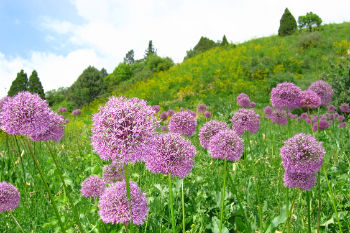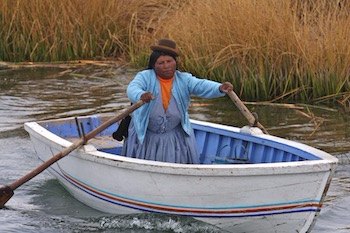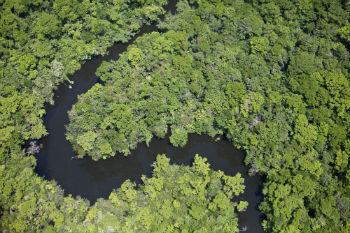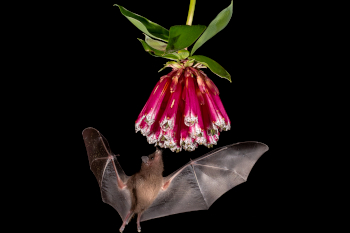Arlington, Virginia, USA (19 September 2023) — More than 2.75 million hectares of Key Biodiversity Areas with improved management and more than 12,000 people trained in conservation skills—these are among the results of the Critical Ecosystem Partnership Fund's (CEPF's) US$23.5 million conservation investment over more than 10 years in the Mediterranean Basin Biodiversity Hotspot.
The Mediterranean Basin is one of the world’s 36 biodiversity hotspots—biologically rich ecosystems that are essential to humanity, yet highly threatened. Working closely with local civil society organizations and communities, CEPF provided 278 grants to implement a biodiversity conservation strategy in the region that has also resulted in:
· The establishment of eight international/transboundary cooperation or networks; 13 national networks; 25 local conservation groups; and 44 lasting partnerships between organizations beyond collaboration on a single project.
· 76,121 hectares of created or expanded protected areas.
· Grantee influence on 43 policies, laws or regulations to benefit conservation.
CEPF is a joint initiative of l’Agence Française de Développement, Conservation International, the European Union, the Global Environment Facility, the Government of Japan, and the World Bank. The fund empowers nongovernmental organizations, Indigenous groups and communities, universities and private enterprises to protect the world’s biodiversity hotspots and help communities thrive. This is accomplished through grants for conservation and organizational strengthening contributing to sustainable development.
CEPF's investment in the Mediterranean Basin also has been supported by the MAVA Foundation, the Audemars-Watkins Foundation, and the Donors’ Initiative for Mediterranean Freshwater Ecosystems (DIMFE).
A regional implementation team provided by BirdLife International and its partners Društvo za opazovanje in proučevanje ptic Slovenije (DOPPS) and Bird Protection and Study Society of Serbia (BPSSS) has helped CEPF guide funding to the most important projects and sites and build civil society capacities.
CEPF recently celebrated the results of its 10-plus years of investment in the Mediterranean Basin by holding a photo exhibit at The Brussels Press Club. A digital version of the exhibit can be seen here. The photos highlight the wild beauty of the region and the people working to ensure a future for these ecosystems, which provide vital services such as fresh water, food, fertile soils and climate change resilience.
The Mediterranean Basin stretches from Cabo Verde in the west to Jordan and Turkey in the east, and from Italy in the north to Tunisia in the south. It also includes parts of Spain, France, the Balkan States, Greece, Turkey, and the nations of North Africa and the Middle East, as well as some 5,000 islands scattered around the Mediterranean Sea. West of the mainland, the hotspot includes a number of Atlantic islands: the Canaries, Madeira, the Selvages, the Azores and Cabo Verde.
CEPF has provided grants to organizations working in 14 countries in the hotspot.*
The Mediterranean Basin is the third richest hotspot in the world in terms of its plant biodiversity (25,000 species), and one of the most important areas on Earth for endemic plants.
###
Media Contact: Julie Shaw, CEPF Communications Director, +1 571-228-0860, jshaw@cepf.net
Download photos for publication here.
About CEPF: The Critical Ecosystem Partnership Fund (CEPF) fills a unique, strategic role in addressing the extinction crisis by mobilizing and empowering civil society—nongovernmental organizations, Indigenous peoples and communities, universities and more—to protect the world's biodiversity hotspots. Since 2001, CEPF has catalyzed enduring, locally led biodiversity conservation through over US$290 million in grants to more than 2,735 organizations in 109 developing and transitional countries. Results include 16.6 million hectares of formal protected areas established, 1,260 globally threatened species supported, and more than 5,600 communities benefiting. Learn more at www.cepf.net, Facebook, Instagram and LinkedIn.
* Note: CEPF support has been provided for conservation action within the Mediterranean Basin Hotspot in those countries that are signatories to the U.N. Convention on Biological Diversity and are also World Bank client members, excluding de facto EU Member States and their territories and the independent countries of Mediterranean Europe (Andorra, San Marino, Monaco, etc.).





